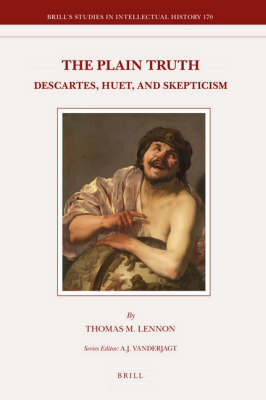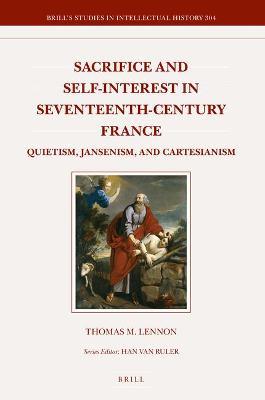Brill's Studies in Intellectual History
2 primary works
Book 170
The skeptic Pierre-Daniel Huet's Censura philosophiae cartesianae (1689) is the most comprehensive, unrelenting and devastating critique of Descartes ever. It incisively captures all the issues that now interest readers of Descartes: the method of doubt, the cogito, clarity and distinctness as criteria of truth, the circularity of the Meditations, proofs of God's existence, etc. Naturally, the work provoked great controversy among the Cartesians, who were implicated in various capacities-Nicolas Malebranche as the occasional cause of the publication, and Pierre-Sylvain Regis as the chief defender of the Cartesian camp. What emerges in this study of the controversy is a heroic, defensible Descartes. He possesses hitherto unappreciated answers to the criticisms that have bedeviled his philosophy from his time to ours.
Book 304
How much of our own self- interest should we be willing to sacrifice for love of another? The Quietists answered, all of it, even the salvation of our own soul. Opposing them were the Jansenists, including Arnauld, who saw self-interest as inescapable. The debate swept across French society in the 17th century, with Bossuet and Fenelon on opposite sides, and was multi- dimensional, with political and ecclesiastical intrigue, charges of heresy, and many shenanigans. Initially theological, the debate's basis lay in differing philosophical concepts of freewill, with both sides claiming support from Descartes's views. The debate thus highlights interpretation of the Cartesians, especially Malebranche, a prominent participant in it. Nevertheless, this is the first book on the debate in English.

